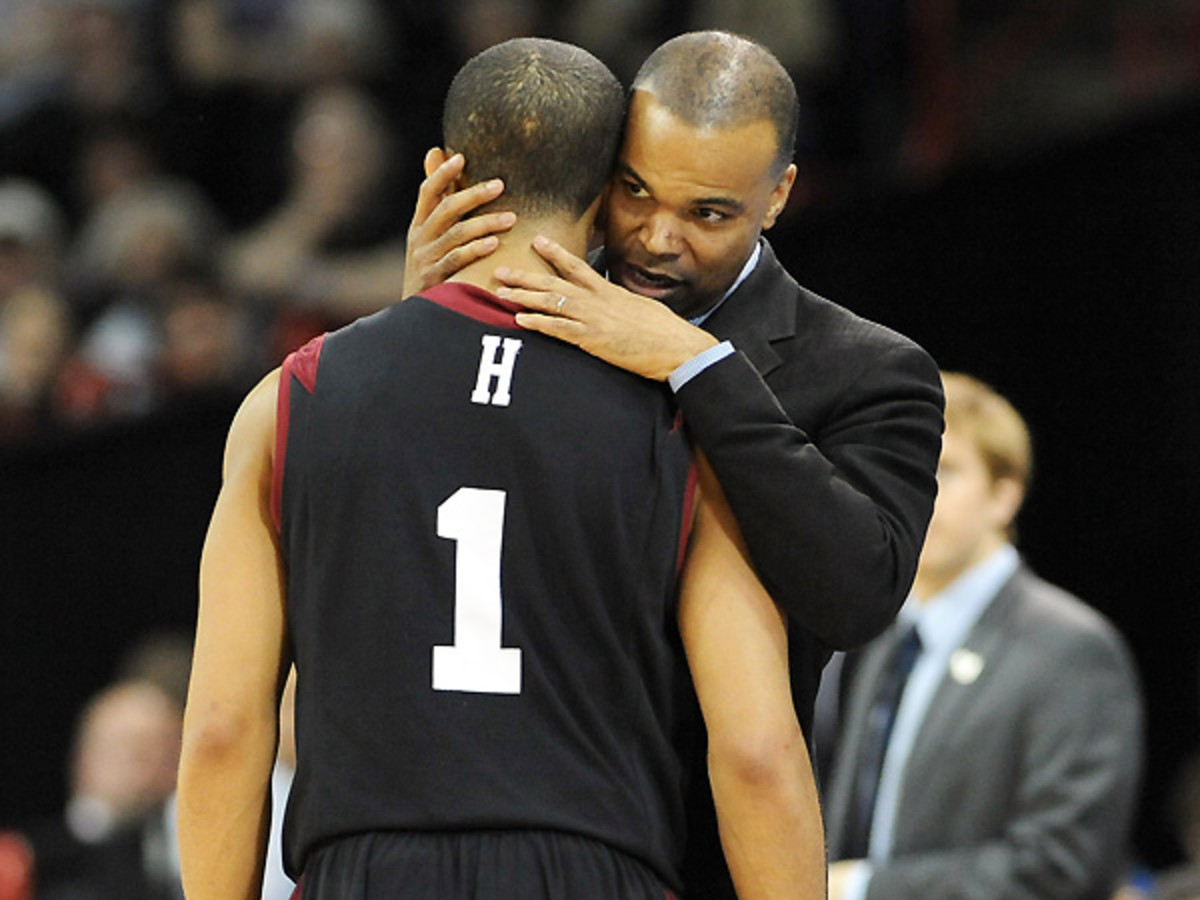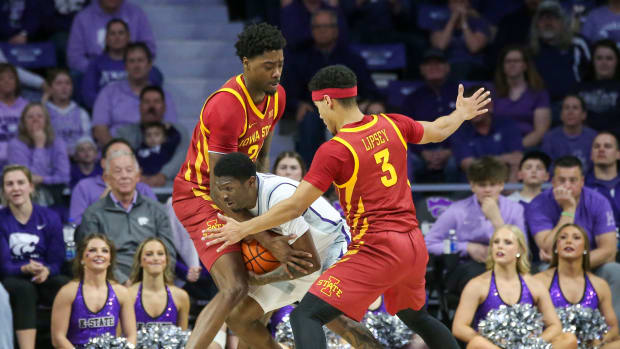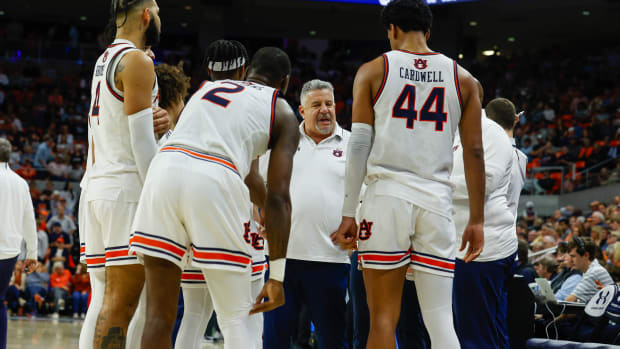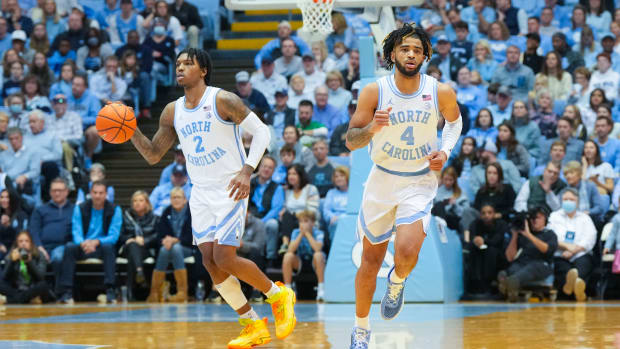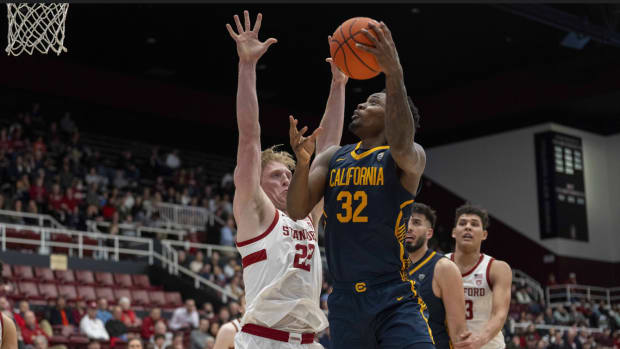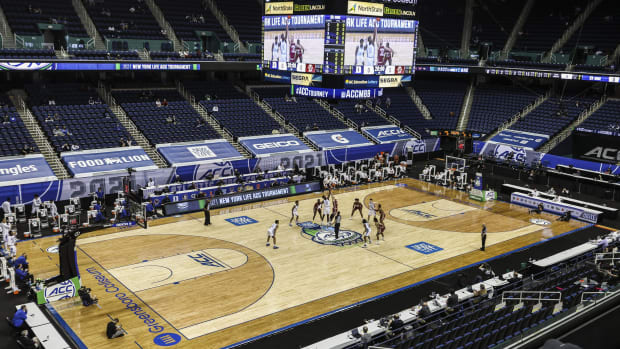After pulling off two tourney upsets in two years, it's clear: Harvard is for real
Tommy Amaker took advantage of Harvard's extra rest before the NCAA tournament to help his Crimson pull the upset. (Steve Dykes/Getty)
SPOKANE, Wash. -- It was still too easy to dismiss them, to pass off the Harvard Crimson as something short of legitimate. Even as those in the know around college basketball praised them, swore they were to be taken seriously, one could point to Harvard’s lack of quality victories outside the Ivy League and the mediocre teams within that league and harbor doubts.
Well, what do you think of the Crimson now?
A year after upsetting third-seeded New Mexico, Harvard upended fifth-seeded Cincinnati on Thursday, taking the lead six and a half minutes into the game at Spokane Arena and then never giving it up, winning 61-57.
Those back-to-back upsets – the first time an Ivy League team has won games in consecutive NCAA tournaments since Princeton in 1983-84 – do more than remove the suggestion that last year was a fluke, and they do more than validate all the people who made Harvard a vogue pick to pull an upset this year. It cements that notion that Tommy Amaker has built a program with staying power and should also eliminate any thoughts that Harvard’s place in the Ivy League is a detriment to sustained success.
“We have standards with this team, expectations,” said senior forward Kyle Casey. “People outside may view us a certain way, but today we did what we felt we were expected to do.”
How Harvard did it was not pretty, not that the game was expected to be a work of art. Two teams featuring top 15 defenses ground away at each other. In the second half, neither squad sniffed 40 percent shooting from the floor. In the first half, both teams went the same four-minute stretch without a field goal. The Bearcats topped that by extending their drought to eight and a half minutes, going 0-for-12, and trailing 36-29 at the intermission. Harvard’s defense was the catalyst for some of those misses, but the majority of the Bearcats’ errant shots were around the rim, with senior forward Justin Jackson (5-for-15 from the floor) the main culprit. Meanwhile, Harvard, which came into the game averaging just under six three-pointers a contest, made that many in the first half alone.
[si_video id="video_63ECA667-374D-C016-FF0F-E18E1281D7ED" height="500"]
Those felt like two storylines that would inevitably shift. Cincinnati surely would convert more of its easy looks, and Harvard couldn’t continue to convert so many difficult shots against the Bearcats defense. But while the Crimson were 0-for-6 on three-pointers after the break, Cincinnati’s offensive woes never subsided. “Our mental state was not where it needed to be,” Bearcats coach Mick Cronin said. “I think our struggles on offense then hurt our mental state on defense.”
It is an interesting phrase – "mental state" – as there was no denying, as cliché as it might be to point out, that the Harvard players were more disciplined and wiser when it mattered. Cincinnati tried to speed up the game, but the Crimson wouldn’t bite. The Bearcats tried force turnovers with a full-court press, which they employed for much of the second half, but Harvard had only three turnovers in the final 20 minutes.
Then, in the closing minutes, the mental fortitude of Harvard sophomore guard Siyani Chambers closed out the game. His step-back jumper with just under two minutes remaining was the game’s biggest shot. (Before that make, Chambers had been 1-of-9 on the day.) Then, Chambers’ steal with 49 seconds remaining all but ended the Bearcats chances at closing the gap.
“They are one of the best teams we have played all year,” Cronin said. “They’ve got real players. They’ve got high-major players. They can play against anybody.”
That is why, when asked if this qualified as an upset, Harvard junior forward Steve Moundou-Missi said: “It is up to [the media] to call it what they want to call it. We just think we defeated Cincinnati.” It is why the celebration in the locker room after the game was muted, as if the Crimson had been there before, which of course they had. It is also why it might be time to rethink a long-standing knock against the program.
Playing in the Ivy League was presumed to put the Crimson at a disadvantage in March because of the lack of quality opponents they face. However, while the rest of the field was battling in conference tournaments -- which the Ivy League does not have -- Harvard’s players rested and nursed minor injuries. And Amaker was able to taper the intensity of practices before gradually ramping it back up. Further, Ivy League teams typically play back-to-back on Friday and Saturday. The quick turnaround in the NCAA tournament is, if anything, more forgiving.
“Hey, we get a day off between games here,” said Casey. “In league, we play a game, get on a bus, have about four hours to learn the game plan, and then we play again. This is easier.”
Harvard’s opponent Saturday is fourth-seeded Michigan State, and there is nothing easy about facing the Spartans and Tom Izzo in March. Win or lose, though, the Crimson have surely turned perception for good, swayed any remaining doubters.
